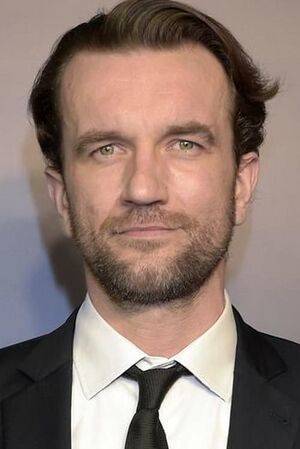Prime Minister of Volyna
| Prime Minister of the Volynian Republic | |
|---|---|
| Прем'єр-міністр Волинської Республіки | |
 Volynian Coat of Arms | |
| Style | Mr Prime Minister (informal) His Excellency (diplomatic) |
| Type | Head of government |
| Member of |
|
| Reports to | President |
| Residence | Haranenko Estate |
| Seat | Lusk, Volyna |
| Appointer | President |
| Term length | No term limit |
| Constituting instrument | Third Republic Constitution |
| Inaugural holder | Taras Pryjmak |
| Formation | 4 October 1947 |
| Website | www.government.uk |
The prime minister of Volyna (Volynian: прем'єр-міністр Волині), officially the prime minister of the Volynian Republic, is the head of government of the Volynian Republic and the leader of the Council of Ministers.
The prime minister is the holder of the second-highest office in Volyna, after the President of Volyna. The president, who appoints but cannot dismiss the prime minister, can ask for their resignation. The Government of Volyna, including the prime minister, can be dismissed by the National Assembly. Upon appointment, the prime minister proposes a list of ministers to the president. Decrees and decisions signed by the prime minister, like almost all executive decisions, are subject to the oversight of the administrative court system. Some decrees are taken after advice from the Council of State (Volynian: державна рада), over which the prime minister is entitled to preside. Ministers defend the programmes of their ministries to the prime minister, who makes budgetary choices. The extent to which those decisions lie with the prime minister or president often depends upon whether they are of the same political party. If so, the president may serve as both the head of state and de facto head of government, while the prime minister serves as his deputy.
Nomination
The prime minister is appointed by the President of Volyna, who is theoretically free to pick whomever she pleases for the post. In practice, because the National Assembly does have the power to force the resignation of the government by adopting a motion of censure, the choice of prime minister must reflect the will of the majority in the National Assembly. A situation in which the president is forced to work with a prime minister who is a political opponent, is called a cohabitation.
While prime ministers are usually chosen from amongst the ranks of the National Assembly, on rare occasions the president has selected a non-officeholder because of their experience in bureaucracy or foreign service, or their success in business management—Ruslana Potapenko, most notably, served as prime minister from 2005 to 2007 without ever having held elected office.
Although the president's choice of prime minister must be in accordance with the majority in the National Assembly, a prime minister does not have to ask for a vote of confidence after their government's formation. They can base their legitimacy on the president's assignment as prime minister and approval of the government. However, it is traditionally expected that the government seeks a motion of confidence upon entering office.
Role
According to article 21 of the Constitution, the prime minister "shall direct the actions of the Government". Additionally, Article 20 stipulates that the government "shall determine and conduct the policy of the Nation", and it includes domestic issues, while the president concentrates on formulating directions on national defense and foreign policy while arbitrating the efficient service of all governmental authorities in Volyna. Other members of the government are appointed by the president "on the recommendation of the prime minister". In practice the prime minister acts in harmony with the president to whom he is a subordinate, except when there is a cohabitation. In such cases, a constitutional convention gives the prime minister primacy in domestic affairs, while the president oversees foreign affairs. His responsibilities, then, are akin to those of a prime minister in a parliamentary system.
The prime minister can "engage the responsibility" of their government before the National Assembly. This process consists of placing a bill before the assembly, and either the assembly overthrows the government, or the bill is passed automatically (article 49). In addition to ensuring that the government still has support in the house, some bills that might prove too controversial to pass through the normal assembly rules are able to be passed this way.
The prime minister may also submit a bill that has not been yet signed into law to the Constitutional Council (article 61). Before they are allowed to dissolve the assembly, the president has to consult the prime minister and the presidents of both houses of Parliament (article 12). They are, as the representative of the government, the only member of the government able to introduce legislation in Parliament.
